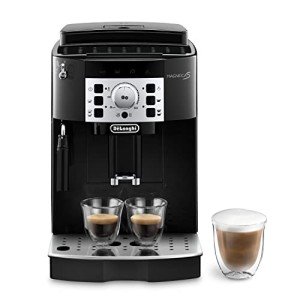Unlocking the World of Bean to Cup Machines: Your Ultimate Guide
Recently, the need for fresh, premium coffee has risen, causing a rise in the appeal of bean to cup machines. These gadgets provide a hassle-free method for coffee enthusiasts to take pleasure in newly ground coffee at the touch of a button. This short article dives into the advantages, functions, and considerations of bean to cup machines, guaranteeing readers are well-informed before purchasing.
Understanding Bean to Cup Machines
Bean to cup machines are automated coffee makers that grind whole coffee beans simply before developing. This process maximizes flavor retention, scents, and vital oils, offering a superior taste experience compared to pre-ground coffee. Created for convenience, these machines can produce a range of coffee styles, including espresso, cappuccinos, and lattes.
Benefits of Bean to Cup Machines
- Freshness: Grinding the beans immediately before brewing preserves the coffee's natural tastes. Fresh coffee premises launch important oils that contribute to a richer taste.
- Convenience: Many bean to cup machines are created for easy to use operation. With the push of a button, users can enjoy their favorite coffee beverages without complex brewing approaches.
- Flexibility: Most machines provide customizable settings, allowing users to change grind size, coffee strength, and beverage size according to personal preferences.
- Consistency: With automated grinding and brewing processes, these machines offer constant brewing outcomes, ensuring a quality cup each time.
- Affordable: While the in advance investment may be greater, the long-term cost savings from preventing coffee shop visits can make these machines economically beneficial.
Secret Features to Consider
When selecting a bean to cup machine, it's important to try to find particular functions that suit individual requirements. The following table summarizes crucial functions and their benefits:
| Feature | Description | Advantage |
|---|---|---|
| Grind Settings | Adjustable settings for different grind sizes (coarse to fine) | Allows modification based upon coffee type and choice |
| Milk Frother | Integrated frothing technology for creamy textures in milk-based drinks | Enhances coffee variety (e.g., lattes, coffees) |
| Water Reservoir Size | Varies from 1 to 2 liters; some machines have integrated water filters | A larger reservoir needs less regular refills |
| Interface | Digital displays and programmable options for various beverage settings | Makes it simple to customize drinks |
| Cleaning up and Maintenance | Automatic cleaning cycles and removable developing units | Simplifies upkeep for long-lasting use |
Leading Bean to Cup Machines on the marketplace
The marketplace is filled with bean to cup coffee machines, each offering distinct functions. Here's a list of a few of the top designs presently offered:
De'Longhi Dinamica ECAM35020
- Functions: Adjustable coffee strength, built-in frother, automatic cleaning
- Pros: Compact style, user-friendly user interface
Breville Oracle Touch
- Features: Touchscreen operation, dual boiler system, programmable settings
- Pros: High-end performance, flexible brewing choices
Philips 3200 Series
- Functions: Touch screen, 5 various coffee styles, AquaClean filter
- Pros: Affordable, easy to clean
Jura E8
- Functions: Pulse Extraction Process, fine foam technology, intelligent water system
- Pros: Excellent quality, clever innovation integration
Siemens EQ.9
- Features: Dual coffee beans compartment, home connect app, customizable settings
- Pros: Versatile, wise home integration abilities
Upkeep Tips for Bean to Cup Machines
To make sure a long life expectancy for a bean to cup machine, regular upkeep is essential. Here are some helpful ideas:
- Daily Cleaning: Clean the developing unit and water tank every day to prevent residue accumulation.
- Usage Fresh Beans: Store coffee beans in an airtight container to keep freshness. Avoid buying Coffee Machine From Beans .
- Descale Regularly: Follow the manufacturer's instructions for descaling to avoid mineral accumulation.
- Examine for Wear and Tear: Regularly examine parts for signs of wear, specifically the mill and the water system.
Frequently Asked Questions (FAQs)
What is the price variety for bean to cup machines?
The cost of bean to cup machines can vary substantially. Fundamental models begin around ₤ 300, while high-end designs can exceed ₤ 2,000. The right option will depend upon features preferred and budget restrictions.
Are bean to cup machines challenging to clean up?
The majority of bean to cup machines feature functions created for easy cleaning. Many models have automatic cleaning procedures, and detachable components streamline maintenance.
Can bean to cup machines make iced coffee?
While beans to cup machines mainly concentrate on hot drinks, some designs have functions that make it possible for users to prepare cold drinks by changing brewing temperature level and strength.
Do bean to cup machines need unique coffee beans?
There are no specific bean limitations; however, it is normally advised to use high-quality coffee beans for optimal taste.
For how long do bean to cup machines last?
With proper maintenance, a good quality bean to cup machine can last anywhere from 5 to 10 years, making it a worthwhile financial investment for coffee fans.
Bean to cup machines present an innovative way to delight in coffee in your home. With their capability to brew a fresh cup of coffee at the push of a button, these machines accommodate both casual drinkers and severe coffee aficionados. By comprehending the key features, advantages, and upkeep pointers, consumers can make educated getting decisions, ensuring their journey into the world of newly brewed coffee is as pleasurable as possible.

